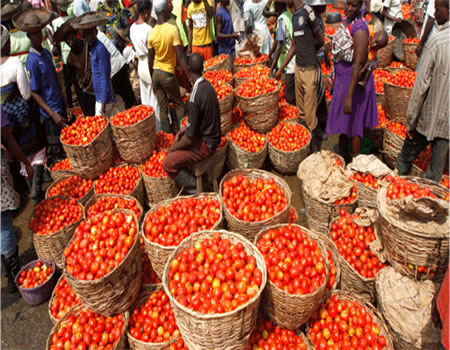Speaking in an interview during the GEMS4 dissemination workshop on agribusiness/micro retail in Kaduna, intervention manager, Richard Ogundele, while calling for the need for post harvest loss reduction in tomatoes production, said the country could feed itself and generate surplus agricultural products for export.
He blamed the loss on Nigerians’ inability to convert excess production of tomatoes into paste, noting that poor traditional handling practices and inefficiency in resource use had created a gap between farmers and processing companies.
Ogundele, however, pointed out that despite the 45 per cent loss, out of its current 1.8 million metric tons of tomatoes produced annually, Nigeria had the capacity to produce 2.3 million tons.
“The first thing we need to do is to ensure that we begin to reduce our post harvest losses by having about 124 processing plants in place.
“If we set up processing plants, for instance, in local government areas we mapped during our presentation, this means we will be able to produce enough tomato paste in Nigeria and the need to import will be reduced or totally eliminated over a period of 8 to 10 years.
“The post-harvest loss reduction has to do with changing the supply chain operation of farmers. These include handling practices; introducing new packaging materials; ensuring you have storage facilities that are cold chain operated, probably better off if they are off grid, because there is no constant electricity supply in the country,” he stated.
“So if you have an off grid solution to your storage, it helps you , and then you have where you call pack houses, where proper grading, washing salting will be done and this helps us to create jobs, and increases income for the poor, in the value chain at that level of the sector.”
He said GEMS4 is “ responsible for ensuring that enough information required to aid any investment is provided, then we expect that the investors will take this information from us and go into a little bit of more analysis before they start setting up processing plant.
“ But right now, after we produce the tomato cluster map for instance, in katsina state the , cluster processing factory is set for operation, that is because they now see that with data available, they know were to get the tomatoes from, when it will be available and what type of tomato will be available to them.”
He concluded saying GEMS4 was funded by the United Kingdom Development (DFID/UKAID) , hence the World bank recognizes the need to checkmate the wastage that feature in the movement of fresh tomatoes to processing companies.






